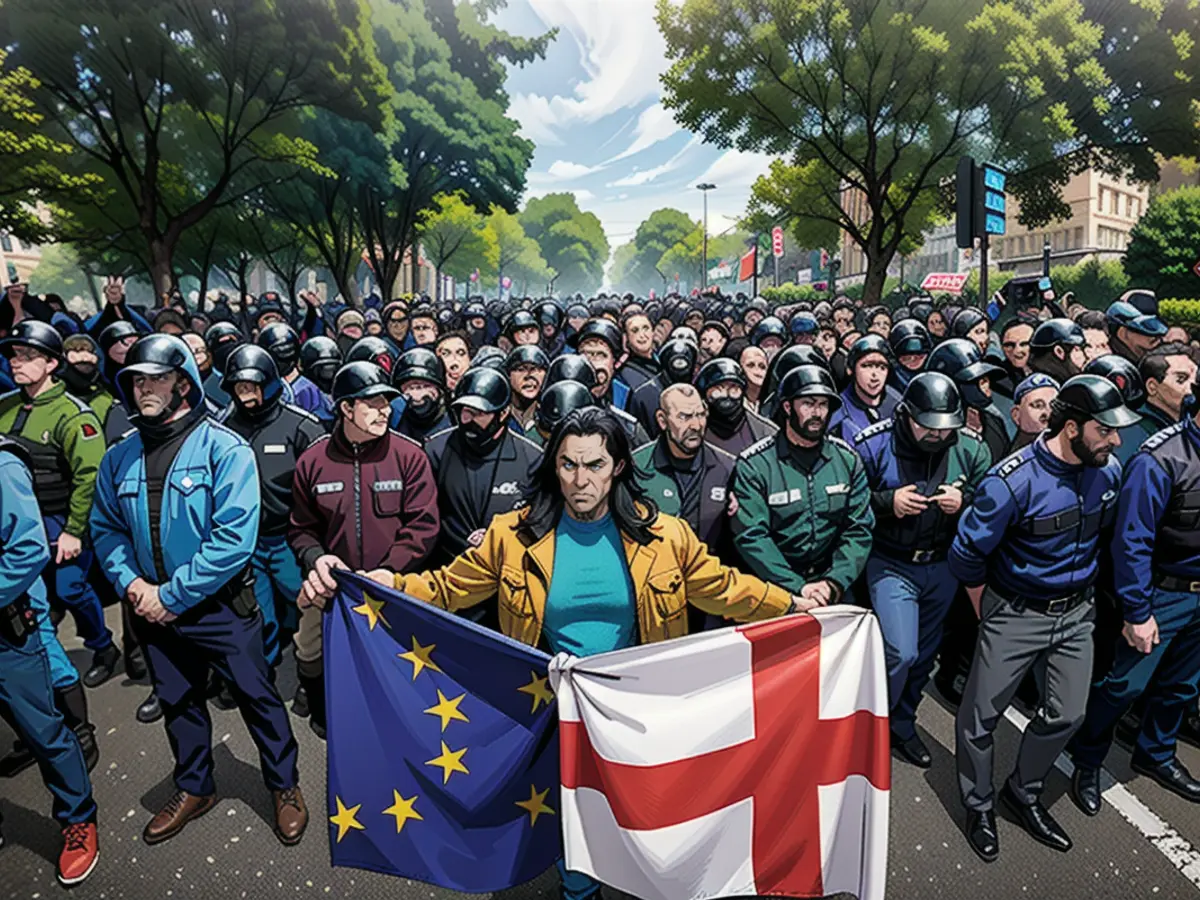Question of a human or a bear causing panicked reactions online.
The question posed to women appears to be a straightforward one: Would you rather be alone in the woods with a man or a bear?
Despite this, there's no universally agreed upon answer. Many women have taken to social media platforms like TikTok, Instagram, and X to express their opinions, and a significant number have stated their preference for the bear. This has sparked ire among some men online, but more than that, it has led to a thought-provoking conversation about violence against women and how potential danger doesn't always present itself as a ferocious animal lurking in the woods.
It's not actually about the bear
In a popular TikTok video with over 16.7 million views, eight women are asked whether they'd rather be stuck in the forest with a man or a bear. Seven of these respondents quickly opt for the bear.
This question and its variations can be found in countless other videos, featuring diverse groups of people, from friends and family to strangers on the street. When asked why they'd choose the bear, women consistently mention their understanding of bear behavior and their belief in how to survive an encounter.
The comments on this viral video make this abundantly clear:
"You know what to expect from a bear."
"Absolutely a bear, humans are capable of so much worse."
"Bear, because if I got attacked by a bear, people would believe me."
The real issue isn't about bears or men. This hypothetical situation serves no purpose other than to provoke thought and discuss the prevalence of violence against women.
"The fact that women would even consider a man/bear question means we have utterly failed to create a safe society," a user said on X.
Unfortunately, the United Nations' findings tell a different story. According to their data, approximately 89,000 women and girls were intentionally killed worldwide in 2022. Their figures also show that one in three women across the globe has experienced intimate partner violence or non-partner sexual violence, which include domestic violence and rape. These numbers don't even consider other instances that may put a woman at risk, such as harassment or other frightening experiences.
The UN's statistics reveal that a substantial majority of women parliamentarians and journalists have faced psychological violence in the public domain - an alarming reminder of the pervasive reach of violence across all spheres of a woman's life.
Critics are missing the point
Those displeased by the number of women choosing the bear option have criticized the question as "misandrist" and a means to freely vilify men. Others have turned the situation into an opportunity to taunt and demean women.
One X post displays a cartoon of a woman choosing the bear over a man, only to be brutally attacked by the bear.
"Help me understand the math," a response reads. "Women said they feel safer with a bear than a man. So in response, you as a man decided to create imagery of them being violently torn apart to prove that you're not violent and are safe to be around?"
This has left many women frustrated, feeling that some men are simply unable or unwilling to comprehend how it feels to live perpetually fearful of those around them.
An Instagram Threads post illustrates this disconnect.
"A woman should definitely pick the bear," it states. "The bear would eat her. It's not going to help her one bit. A man she can bond with and work together to survive in the woods. If she uses her feminine traits. He would hunt, build, and protect."
The last line, "if she used her feminine traits," has sparked a wave of responses from users who cannot fathom the ignorance.
A common theme among detractors is their misunderstanding of hypothetical questions. Legal discovery services provider LSD Law provides a clear explanation:
"Hypothetical means something that is not necessarily true, but rather used to help explain or understand something else. It's like a pretend situation we use to learn or think about something."
Men are engaging in the conversation
Although it might seem like an argument between men and women, the "man vs. bear" query isn't neatly divided along gender lines. Many men have spoken out in support of the bear option as well.
One TikToker asked her father, a lifelong bear hunter, which he would prefer for his daughter.
"You'd have a better chance with the bear," he answered, after a brief moment of consideration. Then, without any sarcasm or drama, he continued: "Because men are evil."
Another user echoed this notion, pointing out that men (or people, in general) are capable of lying, making false promises, and displaying predatory behavior in ways a bear could never emulate.
"The bear wouldn't apologize after and promise to never do it again."
A TikTok user known as Call Me BK, who's also a creator and anti-misogynist educator, believes he sparked the recent debate between men and bears. He never saw this query as hypothetical and responded to it in a March 12 video, "If you're alone in the woods, seeing a man is ten times scarier than seeing a bear."
In a recent post, Call Me BK mentioned that he never framed it as a "would you rather" question because he already knew females would prefer the bear. Throughout several videos, he's tried to help men understand why women would choose bears over men. This attempt has resulted in various responses – some considered it absurd, cruel, illogical, or worse.
Positive reactions, on the other hand, acknowledged that this question isn't an attack on men or an analysis of bear encounters. Instead, it primarily serves as a gateway to a deeper discussion. One commenter even praised him for "starting an important conversation" that influenced conversations between mothers and their older sons, possibly paving the way for positive change.
Read also:
- Year of climate records: extreme is the new normal
- Precautionary arrests show Islamist terror threat
- UN vote urges Israel to ceasefire
- SPD rules out budget resolution before the end of the year
Source: edition.cnn.com







